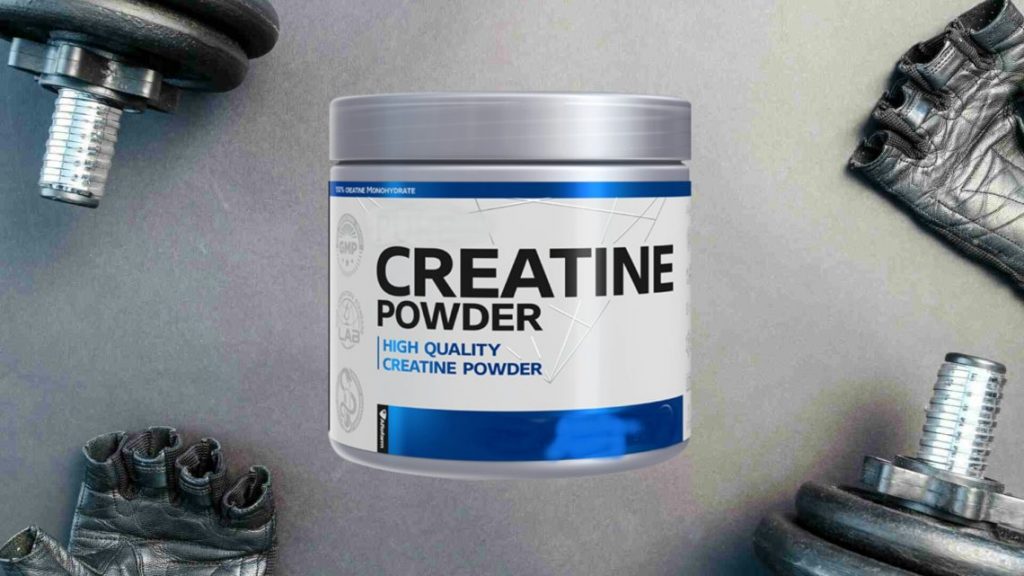Beyond the Hype: Unveiling the Science-Backed Supplements You Should Know
In the maze of health and wellness advice distinguishing between the genuinely beneficial supplements and those surrounded by unwarranted hype can be daunting. The wellness industry is rife with claims about the miraculous effects of various supplements but what does the science actually say? This comprehensive guide dives deep into evidence-based supplements debunking common myths and highlighting the scientifically proven benefits of targeted supplementation.
1. Omega-3 Fatty Acids: Beyond Heart Health

Omega-3 fatty acids found in fish oil flaxseeds and walnuts are renowned for their heart health benefits. However their prowess extends beyond just cardiovascular support. Scientific studies have demonstrated omega-3's efficacy in reducing inflammation supporting mental health and even aiding in weight management. Their role in cognitive function and prenatal development further underscores the wide-reaching benefits of this essential nutrient.
Pros:
- Reduce inflammation potentially lowering the risk of chronic diseases such as heart disease arthritis and cancer.
- Support mental health improving symptoms of depression and anxiety.
- Aid in prenatal and early childhood development particularly in brain and eye health.
Cons:
- High doses can cause blood thinning increasing the risk of bleeding.
- Some sources particularly fish oil may contain contaminants like heavy metals.
Intake Precautions:
- Consult a healthcare provider before starting if you have a bleeding disorder or are on blood-thinning medication.
- Consider purified or high-quality sources to minimize exposure to contaminants.
2. Vitamin D: The Sunshine Vitamin

Vitamin D deficiency is alarmingly common yet its importance cannot be overstated. Evidence links adequate vitamin D levels to improved bone health immune function and mood regulation. With sources primarily being sun exposure and fortified foods supplementation becomes critical in certain populations and climates. Research underscores its role in disease prevention and highlights the necessity for targeted supplementation especially in those at risk of deficiency.
Pros:
- Supports bone health by aiding in calcium absorption.
- Improves immune function and may reduce the risk of autoimmune diseases.
- Linked to better mood and reduced risk of depression.
Cons:
- Excessive intake can lead to hypercalcemia causing nausea weakness and kidney problems.
- Vitamin D is fat-soluble meaning it can accumulate in the body to toxic levels if overconsumed.
Intake Precautions:
- Ensure adequate but not excessive daily intake. The upper limit for adults is 4000 IU/day but individual needs may vary.
- Get levels checked periodically to tailor supplementation to your needs.
3. Probiotics: Gut Health Guardians

The gut microbiome is a cornerstone of overall health influencing everything from digestion to immune response. Probiotics live bacteria found in yogurt kefir and supplements have been scientifically validated to enhance gut health. They aid in the treatment and prevention of gastrointestinal issues enhance nutrient absorption and may even impact mental health through the gut-brain axis.
Pros:
- Support gut health by enhancing the gut microbiome.
- Can reduce the severity and duration of diarrhea and other gastrointestinal issues.
- May have benefits for mental health through the gut-brain axis.
Cons:
- May cause bloating and gas in some individuals.
- The efficacy can vary widely depending on the strain and formulation.
Intake Precautions:
- Start with a lower dose to assess tolerance.
- Choose products with well-researched strains relevant to your health needs.
4. Magnesium: The Multifaceted Mineral

Magnesium plays a pivotal role in over 300 enzymatic reactions in the human body affecting everything from energy production to muscle function. Despite its importance magnesium deficiency is not uncommon. Supplementation has been shown to benefit blood pressure regulation sleep quality and stress management. It’s a prime example of a supplement with diverse and significant health impacts backed by solid scientific evidence.
Pros:
- Supports over 300 enzymatic reactions including energy production and protein synthesis.
- Can improve sleep quality and reduce symptoms of depression.
- May help manage blood pressure and prevent migraines.
Cons:
- High doses can lead to gastrointestinal issues like diarrhea.
- Certain forms of magnesium are absorbed better than others; some may act more as laxatives.
Intake Precautions:
- Begin with a lower dose to gauge your body's response.
- Individuals with kidney issues should consult a healthcare provider before supplementation due to risks of accumulating to toxic levels.
5. Curcumin: The Anti-Inflammatory Powerhouse

Curcumin the active component of turmeric has garnered attention for its potent anti-inflammatory and antioxidant properties. Scientific research supports its use in managing chronic inflammation pain and metabolic syndrome. Curcumin's benefits extend to brain health with studies suggesting a potential role in cognitive maintenance and depression management. However its bioavailability can be limited highlighting the importance of formulation in supplements for optimal absorption and efficacy.
Pros:
- Strong anti-inflammatory and antioxidant properties may reduce the risk of chronic diseases.
- Supports brain health and may improve symptoms of depression and arthritis.
Cons:
- Poor bioavailability on its own; requires specific formulations for effective absorption.
- High doses can cause digestive issues in some individuals.
Intake Precautions:
- Look for supplements containing piperine or those designed for enhanced absorption.
- Start with a lower dose to monitor your body's response.
6. Creatine: Not Just for Athletes

Creatine often associated with muscle building in athletes has compelling evidence supporting its benefits beyond the gym. Research indicates creatine supplementation can enhance strength aid in muscle recovery and support cognitive function. Its safety profile and wide-ranging benefits make it a noteworthy supplement for various populations not just those seeking athletic improvement.
Pros:
- Enhances physical performance especially in high-intensity activities.
- Supports muscle growth and strength.
- May have cognitive benefits particularly under conditions of stress or sleep deprivation.
- Cons:
- Potential for weight gain due to water retention in muscles.
- Rarely has been associated with gastrointestinal discomfort and muscle cramping.
Intake Precautions:
- Stay well-hydrated to offset potential cramping.
- Consider timing intake around workouts for maximum benefit.
7. Calcium: Foundation for Bone Health

Calcium’s role in supporting bone health is well-documented but its benefits are maximized when taken in conjunction with vitamin D and magnesium. Targeted supplementation is especially crucial for individuals at risk of osteoporosis. While calcium is available through dietary sources certain populations may require supplements to meet their daily needs underlining the importance of personalized nutrition advice.
Pros:
- Crucial for bone health and preventing osteoporosis.
- Plays a role in muscle function and nerve signaling.
Cons:
- Excessive intake can lead to hypercalcemia with symptoms like constipation and in severe cases kidney stones or cardiovascular issues.
- Absorption can be hindered by high amounts of other minerals like iron or zinc consumed simultaneously.
Intake Precautions:
- Balance with adequate vitamin D intake to enhance absorption.
- Avoid taking with high amounts of other minerals at the same time.
For all supplements it’s crucial to:
Consult with a healthcare provider before beginning any new supplement especially if you have pre-existing health conditions or are taking other medications.
Consider your dietary intake to assess whether supplementation is necessary as obtaining nutrients from food sources is generally preferred.
Be aware of the recommended daily allowances and upper intake levels to avoid potential adverse effects.
Myths Debunked On Considering Supplements On Regular Basis!
When it comes to regular supplementation myths abound. It’s often thought that "more is better" or that supplements can fully replace a balanced diet. However science tells us that targeted supplementation—choosing the right supplement at the right dose for the right reason—is key. Supplements are intended to fill nutritional gaps not replace whole food nutrients.
Let's expand on the myths debunked regarding regular supplement intake with more clarity and detail:
Myth 1: Supplements Can Completely Replace a Balanced Diet
- Truth: Supplements are intended to fill nutritional gaps not serve as a substitute for a varied and balanced diet. Whole foods provide essential nutrients along with dietary fiber and bioactive compounds beneficial for health.
Myth 2: More Is Always Better
- Truth: Taking higher doses of supplements does not necessarily mean better health outcomes and can sometimes lead to toxicity or adverse effects. It's important to adhere to recommended dosages.
Myth 3: All Natural Supplements Are Safe
- Truth: "Natural" does not automatically equal safe. Some natural supplements can interact with medications have side effects or be unsafe for certain populations. Quality and purity can also vary.
Myth 4: You Don't Need to Consult a Healthcare Professional Before Taking Supplements
- Truth: It's important to discuss any supplements you're considering with a healthcare provider especially if you have existing health conditions or are taking medications to avoid potential interactions or side effects.

Myth 5: Supplements Are Not Regulated
- Truth: While supplements are not regulated to the same extent as pharmaceuticals reputable manufacturers follow standards for quality and safety. Look for products tested by third-party organizations.
Myth 6: If a Supplement Works for Someone Else It Will Work for Me
- Truth: Individual responses to supplements can vary based on genetics existing nutrient levels and overall health. What works for one person may not work for another.
Myth 7: Supplements Immediately Show Results
- Truth: The effects of supplements can take time and may not always be immediately noticeable. Some benefits like those to bone health or cardiovascular health develop over longer periods.
Myth 8: There's No Harm in Trying Different Supplements Just to See What Happens
- Truth: Experimenting with supplements without a clear need or health goal can lead to unnecessary consumption interactions and side effects. It's best to use supplements with a targeted approach.
By understanding and debunking these common myths you can make more informed decisions about supplement use ensuring that your approach to supplementation is safe effective and tailored to your individual health needs.
Conclusion
Navigating the world of supplements with an evidence-based approach is essential for making informed health decisions. Omega-3 fatty acids vitamin D probiotics magnesium curcumin creatine and calcium stand out for their scientifically proven benefits addressing a range of health concerns from bone health to cognitive function. However it's crucial to debunk the myths surrounding supplementation—recognizing that a targeted informed approach is necessary. Supplements can offer significant health benefits when used appropriately but they're most effective as part of a holistic approach to wellness including a balanced diet regular exercise and adequate sleep.






